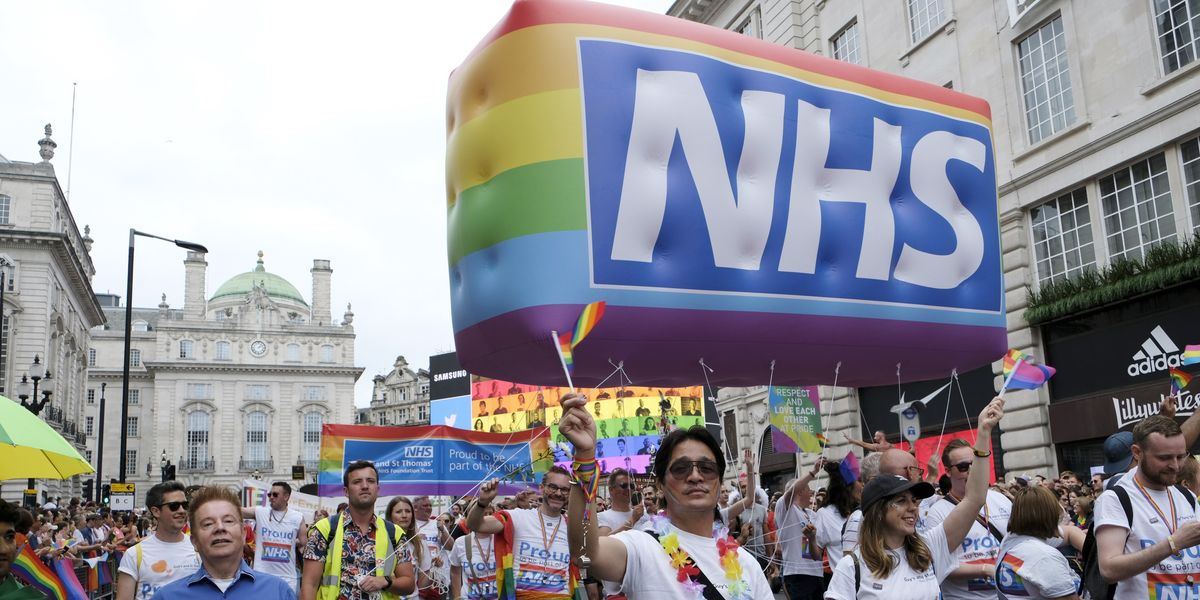Controversy Surrounds NHS Training on Transgender Inclusion
In a move that has sparked significant debate and concern, NHS staff have been mandated to undergo training that emphasizes the importance of inclusivity regarding transgender colleagues. The training, titled "Equality, Diversity, Inclusion and Human Rights Skills," was introduced by NHS England in August and has raised questions about its implications for staff rights and workplace dynamics.
The Training Framework
The training program, which spans 23 pages, includes various case studies and multiple-choice questions designed to assess employees’ understanding of discriminatory behavior. One of the key components of the training is a section labeled "transphobic colleague," which asserts that asking transgender staff to use gender-neutral or disabled toilets could be considered illegal harassment. This directive emphasizes that individuals should have the autonomy to choose facilities that align with their gender identity.
Employee Concerns
A whistleblower from within the NHS, who shared the training document with the Daily Mail, expressed concerns about the pressure to conform to the training’s ideology. The employee noted that passing this training is essential for career progression and even for maintaining employment within NHS England. This has led to feelings of coercion among staff, who may feel compelled to align with the dominant views presented in the training, even if they personally disagree.
The whistleblower stated, "For all the supposed commitment to ‘diversity’, if you don’t agree with the ideology of a dominant clique, you either have to lie or leave.” This sentiment reflects a growing unease among some NHS workers regarding the balance between promoting diversity and respecting individual beliefs.
Broader Implications of the Training
The training document also includes statements that have drawn criticism, such as the assertion that "people, rather than women, become pregnant and take maternity leave." Such language has been perceived by some as undermining the experiences of women and has contributed to the perception that the training is ideologically driven rather than purely educational.
Another case study within the training highlighted a community nurse who faced reprimand for offering to pray for a patient’s recovery, as this was deemed inconsistent with the commitment to equality and diversity. These examples have led to accusations that the training prioritizes a specific ideological stance over a balanced approach to inclusivity.
Response from Women’s Rights Campaigners
The training has not gone unnoticed by women’s rights advocates, who have criticized it as "partisan and ideological." In a letter addressed to Amanda Pritchard, the NHS’s chief executive, campaigners have called for a review of the training materials. Maya Forstater, chief executive of the human rights charity Sex Matters, articulated concerns that the training conflicts with existing laws regarding sex, gender reassignment, and belief discrimination. She warned that the current approach could expose NHS England to accusations of mass discrimination and harassment.
NHS’s Reaction and Future Steps
In light of the backlash, the NHS has announced that the controversial training module has been withdrawn and will be replaced in the coming weeks. An NHS spokesperson acknowledged that the guidance was outdated and emphasized the organization’s commitment to developing new training that aligns with legal standards and public-sector equality duties.
Conclusion
The introduction of mandatory training on transgender inclusion within the NHS has ignited a complex debate about the balance between promoting diversity and respecting individual beliefs. As the NHS works to revise its training materials, it faces the challenge of fostering an inclusive environment while ensuring that all staff feel respected and valued. The outcome of this situation will likely have lasting implications for workplace culture within the NHS and beyond, as organizations grapple with the evolving landscape of gender identity and inclusivity.
